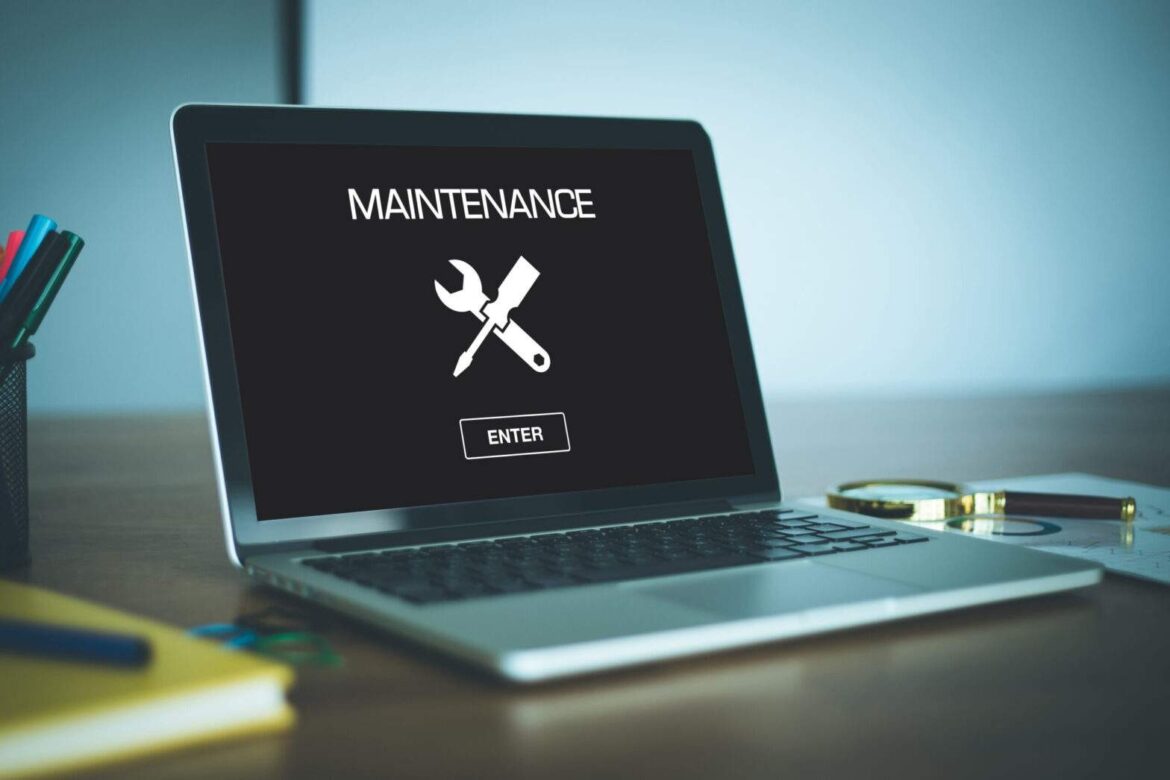In today’s digital world, having a website is crucial for businesses of all sizes. However, simply creating a website is not enough; ongoing website maintenance services are essential to keep it running smoothly, secure, and up-to-date. A well-maintained website enhances user experience, improves search engine rankings, and ultimately contributes to the success of your online presence. In this article, we will explore the importance of website maintenance, the key services involved, and how to choose the right provider for your business needs.
Understanding Website Maintenance
Website maintenance refers to the regular updates, monitoring, and management of a website to ensure it operates efficiently and securely. This process encompasses a variety of tasks, including software updates, security checks, backups, content updates, and performance optimization. By investing in website maintenance services, businesses can avoid potential issues that could lead to downtime, security breaches, or a poor user experience.
The Importance of Regular Maintenance
Neglecting website maintenance can lead to numerous problems. A poorly maintained website may suffer from slow loading times, broken links, outdated content, and security vulnerabilities. These issues not only frustrate users but can also harm your brand reputation and affect your search engine rankings. Regular maintenance ensures that your website remains functional, user-friendly, and relevant to your audience.
Benefits of Website Maintenance Services
- Improved Security
One of the primary reasons for website maintenance is to ensure the security of your site. Cyberattacks and data breaches are on the rise, and outdated software or plugins can leave your website vulnerable. Regular maintenance includes updating your CMS, plugins, and themes, which helps protect your site from potential threats. - Enhanced User Experience
A well-maintained website provides a better user experience. Regularly updating content, optimizing loading times, and fixing broken links contribute to a seamless browsing experience. When users find what they’re looking for quickly and easily, they are more likely to stay on your site and engage with your content. - Search Engine Optimization (SEO)
Search engines favor websites that are regularly updated and maintained. Fresh content, functional links, and optimized performance can positively impact your search engine rankings. By investing in website maintenance services, you can improve your site’s visibility and drive more organic traffic. - Backup and Recovery
Regular backups are an essential component of website maintenance. In the event of a crash, hacking, or data loss, having a recent backup ensures that you can quickly restore your site to its previous state. This minimizes downtime and helps maintain your business operations. - Cost Efficiency
While some may view website maintenance as an unnecessary expense, it can save you money in the long run. Addressing issues early on can prevent costly repairs or downtime. Regular maintenance allows you to identify and resolve potential problems before they escalate.
Key Website Maintenance Services
Website maintenance encompasses a wide range of services. Here are some of the most important components that should be included in a comprehensive maintenance plan:
1. Software Updates
Keeping your website’s content management system (CMS), plugins, and themes up to date is crucial for security and performance. Regular updates ensure that you have access to the latest features and security patches, reducing the risk of vulnerabilities.
2. Security Monitoring
Security monitoring involves regularly checking your website for potential threats, malware, or unauthorized access. This service may include running security scans, implementing firewalls, and configuring security settings to safeguard your site.
3. Content Updates
Fresh and relevant content is key to engaging users and improving SEO. Website maintenance services often include updating existing content, adding new blog posts, and ensuring that all information is accurate and up-to-date.
4. Performance Optimization
Website performance can significantly impact user experience and search engine rankings. Performance optimization services involve monitoring loading speeds, optimizing images, and implementing caching techniques to enhance site speed and efficiency.
5. Backup Services
Regular backups are essential to protect your data. A comprehensive website maintenance plan should include automated backups, ensuring that your website can be restored quickly in case of an emergency.
6. Broken Link Checking
Broken links can frustrate users and hurt your SEO. Regular maintenance services should include checking for and fixing broken links, ensuring that users can navigate your site without issues.
7. Analytics Monitoring
Tracking website analytics provides valuable insights into user behavior, traffic sources, and conversion rates. Maintenance services often include monitoring these metrics to help you make informed decisions about your website strategy.
How to Choose the Right Website Maintenance Service Provider
Selecting the right website maintenance service provider is crucial to ensuring that your website remains functional and secure. Here are some factors to consider when making your decision:
1. Experience and Expertise
Look for a provider with a proven track record in website maintenance. They should have experience working with your specific CMS and a strong understanding of security practices, SEO, and performance optimization.
2. Range of Services
Ensure that the provider offers a comprehensive range of maintenance services tailored to your needs. This should include software updates, security monitoring, content updates, backups, and performance optimization.
3. Customization Options
Every website has unique needs, so it’s important to choose a provider that offers customizable maintenance plans. Discuss your specific requirements and ensure they can tailor their services accordingly.
4. Response Time and Support
Inquire about the provider’s response time and support options. A reliable maintenance service should offer prompt support in case of issues, ensuring minimal downtime and disruptions.
5. Pricing Structure
Compare pricing structures among different providers to find one that fits your budget. Keep in mind that the cheapest option may not always be the best. Look for a provider that offers a balance of quality services and reasonable pricing.
Conclusion
Investing in website maintenance services is essential for any business that relies on its online presence. Regular maintenance not only improves the security and performance of your website but also enhances user experience and boosts your SEO efforts. By understanding the importance of website maintenance and the key services involved, you can ensure your website remains a valuable asset for your business.
To learn more about comprehensive website maintenance services and how they can benefit your business, visit this link.








